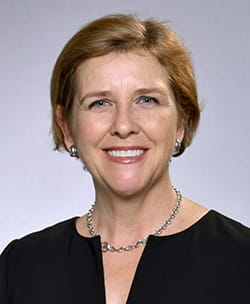
Thought Leadership
Creating Your Leadership Philosophy
Aspiring leaders face many challenges, but nearly all obstacles are more easily overcome via the guidance of a basic leadership philosophy. “Successful leaders typically think about the art of leadership and their philosophy of leading,” said Prof. Brooke Vuckovic, faculty member in The Leader Within. “And a key aspect of a leadership philosophy is that it’s a tether — something you can return to when you’re tested at work. It’s a guiding principle, a touchstone as well as a North star.”
Vuckovic offers a framework for deciding on a set of bedrock leadership principles which “operate often beyond our awareness but inform or shape an individual’s work and responses to situational tests.”
Need inspiration? Look to the leaders you know and love. What is or was their philosophy of management? How would you capture it?
One of the philosophies Vuckovic points to as a good example is that of L.L. Bean founder Leon Leonwood Bean: “Treat your customers like you would treat your friends, and the business will take care of itself.”
Another comes from Spanx founder Sarah Blakeley: “Don't be intimidated by what you don't know. That can be your greatest strength and ensure that you do things differently from everyone else.”
Both of these convey something important about how these leaders manage and approach their leadership decisions as well as the behaviors they hope to inspire from those working in their enterprises. Now it’s your turn.
- Your first step is to define a specific area of your philosophy, one in which you’d like to uncover the foundational set of assumptions you hold, or where you’d like to become clearer or more crisp in your communication.
- The next step is to start to put some words to it: make it more relevant and memorable. “Use stories, metaphors, articles, stories of heroes and legends, or mottos,” Vuckovic suggested. “After you get to the meat of it, you must figure out how to communicate it to people in a compelling way. Then you try it out and iterate. Your audience can be employees or peers. Just see if what you’ve come up with resonates with them.”
If you're having trouble getting started, think of the following questions to jumpstart your thinking:
What's the purpose of the enterprise?
- What do we stand for?
- Why does our success matter?
- What goals are most important?
What defines success?
- What is the compelling outcome for us as an enterprise?
- How do all the stakeholders relate to the success?
- What’s the priority among stakeholders?
- What’s the meaning of work?
Creating a leadership philosophy takes time, but it’s a sound investment of effort, Vuckovic noted. “Just carve out an hour. Set a timer and go,” she said. “See it as a living, breathing thing that you will continue to evolve over time. It’s such a powerful tool that it’s well worth it.”
 |
Dr. Brooke Vuckovic teaches leadership coaching to Kellogg's full-time MBA students and has co-developed coaching programs for multiple Executive Education programs. In addition to being the Academic Director for Leading for Impact within Family Enterprise and The Leader Within. Dr. Vuckovic teaches in many of the leadership programs offered through Kellogg Executive Education and the Center for Nonprofit Management. Outside of Kellogg, Dr. Vuckovic has an executive coaching practice working with senior executives. |



